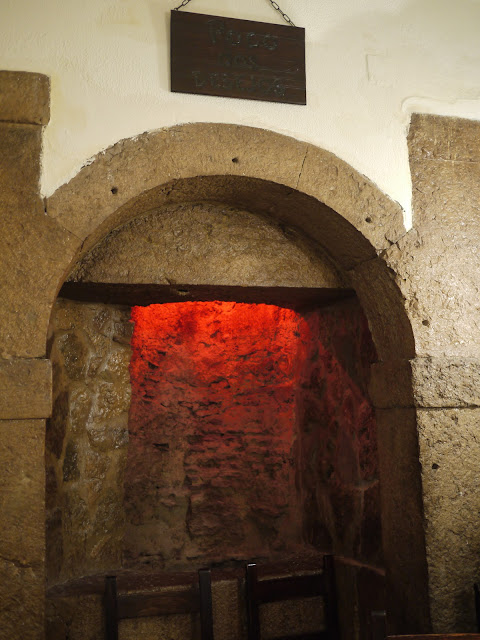The Goddesses of Fado
An archaeologist unearths the divine feminine, one archetype at a time...
After a day of wine tasting
riding the trolleys
and entering Lisbon's favorite spot
to sample their legendary ports
it was time to experience another famous entertainment in Lisbon.....
the Fado.
The word Fado means fate. This haunting, unforgettable style of singing was born in Portugal and is known around the world; and while men do perform the Fado, it is sung mostly by women. As in many cultures, there is a word in Portuguese that doesn't translate into English. Saudade can be understood as homesickness, or nostalgia. The bittersweet longing that comes through in this genre of urban folk music results in songs about unrequited love.
In the early 1800s a woman named Maria Severa was in love with a noble, the Count de Vimioso. When their forbidden affair came to an end, Maria roamed the streets and bars of the Barrio Alto, strumming her guitarra and singing her sorrows. Her style of belting out songs in cries and moans became a popular tradition that morphed into the Fado.
Some of the most famous Fado singers since Maria have been Amalia Rodrigues
Maria Teresa de Noronhaand Mariza
One evening we wandered through a doorway in the Barrio Alto neighborhood of Lisbon. There, over a meal of grilled shrimp and a bottle of cold Vinho Verde in the shadows of a cavern-like room,
we were transported by the sorrowful melodies and heartbreaking emotions of this mesmerizing genre.
That evening, as I listened to these women's powerful, extraordinary voices, I knew they were channeling something otherworldly,
and I was hearing the voice of the Goddess coming through.....
clear, strong and unforgettable.
















